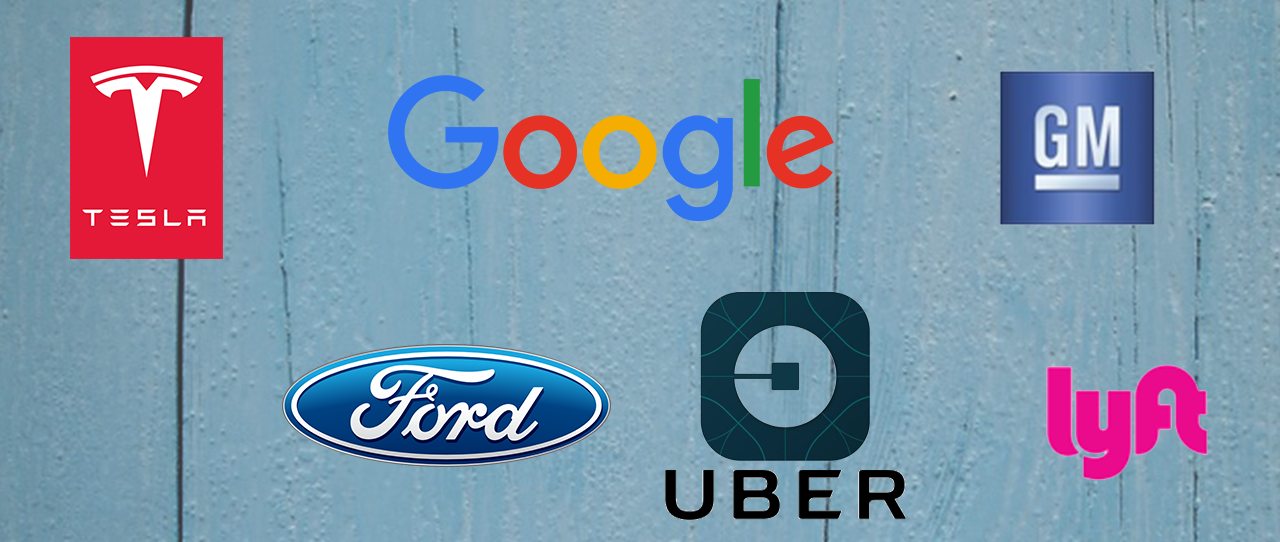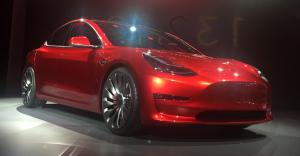
Driverless Car Companies for Dealers to Watch
Driverless car companies and autonomous vehicles are already among us. And they’ll continue shaking up the automotive industry — particularly over the next five years.
But which companies are pursuing driverless tech? Are the brands we know going to lead the surge forward, or will it be new players in the auto world?
We pored over the available news to identify leading driverless car companies. Here are our predictions on what autonomous driving means for your dealership’s bottom line.
The Emerging Driverless Car Companies
Obviously, the ideal scenario for an auto dealer would have next year’s Ford Focus or Subaru Crosstrek rocking autonomous features. That would mean nothing would change in the current battlefield of OEMs, and your sales staff would just need to study up on the cool new tech.
But in America’s free market, the consumer’s ideal has the advantage. Some of the country’s leading tech companies are also in the driverless fray, which means the first driverless cars you see in your neighborhood may be sporting a more avant-garde hood ornament.
Google/Alphabet
Google has been in this race the longest — since as early as 2009 — and just last week, it revealed some significant news.
First off, Google’s overarching corporation, Alphabet, announced that it will be moving its autonomous pursuits into its own company, Waymo.
Second, Google reported it was able to successfully drive a legally blind man through Austin, Texas, with no steering wheel or brakes. The Austin cruise marks a huge step forward in the company’s confidence about its driverless tech.
Meanwhile, Google (or rather, Waymo) had announced a partnership with Fiat-Chrysler back in May and may now be looking to partner with more existing manufacturers.
This is recent news (and still developing), but it could mean Google will sell its autonomous advances to the current auto companies. Just don’t forget that Google does own a ride-sharing app called Waze and could look to compete with Uber on that front in 2017.
Speaking of . . .
Uber
The ride-sharing company is definitely at the top of the list for driverless car advancements. Uber could easily be the one to break autonomous riding into popular demand.
In Pittsburgh, the company already has a small fleet of driverless vehicles delivering passengers.
While it may be a contentious path, Uber is also pushing the legality obstacles of the autonomous movement. Just last week, Uber started running its vehicles in San Francisco — where California’s DMV and attorney general claim the company is violating regulations. Uber seems to be balking at the idea that its vehicles need a permit, as there are human beings at the helm to take over at a moment’s notice if the need arises.
Eliminating the driver’s cut of profits from the ride-sharing process could be huge for Uber’s bottom line.
In truth, though some of the biggest and brightest companies are in the mix, Uber quite possibly has the most to gain from a successful launch of autonomous vehicles across the country. It’s definitely one to watch.
General Motors
General Motors (GM) is another company to keep an eye on.
In 2016, GM purchased assets from Sidecar, acquired Cruise Automation, and invested $500 million in Lyft. Within the next year, we’ll see high-end Cadillac models sporting Super Cruise technology — a set of semi-automated features that the company developed itself.
Working with Lyft, GM might stand out as the automotive industry’s best hope for fending off Silicon Valley. If GM can attain the tech first and then sell it to Lyft drivers, it may have an easier time shaping the future of driverless cars in a manner favorable to the current status quo.

Photo credit: Steve Jurvetson
Tesla
It’s no surprise that Tesla would come up in an overview of driverless car companies — especially considering CEO Elon Musk is sometimes playfully compared to futurist superhero Tony Stark.
Musk has said we’re only two or three years from full autonomy on our roads. Tesla’s cars already feature auto steering, lane changing, and parking features.
That said, it will be hard to know more about what Tesla has to offer the driverless race until we know more about the highly anticipated Model 3, which estimates delivery on new reservations in “mid 2018 or later.”
Ford
Ford Smart Mobility LLC is a subsidiary of the auto giant that is geared toward research of vehicle connectivity and autonomy. Ford ambitiously announced this summer that it’ll be selling fully automated vehicles in 2021, which is consistent with our most conservative guess on when the technology will be mainstream.
But Ford will need to make some moves to strike us as a serious contender in getting autonomous vehicles on America’s roads first.
While we’re excited to see what comes next, there’s been pretty limited news from Ford’s camp on vehicle autonomy. Unless it’s just keeping things under wraps, expect the next few headlines to come from somewhere else.
Apple
Though it’s a solid guess that Apple is on the front end of driverless car companies, the company’s Project Titan has apparently stalled a bit in the last year.
For now, Apple is staying quiet about the industry (like it seems to do about everything all the time, to the frustration of geeks everywhere). Until there’s more information, it’s hard to say how far behind the pack Apple is.
That said, the company did finally confirm interest in the field of automated vehicles in a letter about the Federal Automated Vehicles Policy.
A Score of Others
Dealerships of Audi, BMW, Honda, Hyundai, Jaguar, Land Rover, Nissan, Toyota, and Volkwagen — don’t worry. Those brands all have (driverless) horses in this race, and some of them might not be too far behind.
But the truth is that along with a number of startups and tech companies, these auto makers haven’t really left the heavy impression on the developing field that likely driverless car companies like Uber and Google have.
That doesn’t mean that the next big advancements won’t come from some surprise contender. But until then, we’ll simply have to keep our ears to the ground.
(It’s also worth noting that while we knew the passion that the current United States Transportation Secretary Anthony Foxx brought to the autonomous field of possibilities, we’re going to have to wait and see what President-elect Donald Trump’s likely pick — unconfirmed Secretary of Transportation replacement Elaine Chao — thinks of driverless pursuits.)
What Dealerships Can Do Now
For a more exhaustive (if less recent) list of driverless car companies, check out this list by CB Insights.
If you’re currently trying to figure out how your dealership can best prepare for autonomous vehicles, be sure to read our first blog post on the subject: “How Soon Will Driverless Cars Get Here — And What Should Dealers Do About It?”
Better yet, join us April 27 at 1 p.m. CST for a free webinar discussion on how self-driving cars will impact the dealership industry. You can bring questions or tweet them to us ahead of time.
We’ll give you an idea of where the self-driving tech race stands, and make our best attempts to address concerns about the driverless movement, field queries, and imagine the dealership landscape that is to come.






